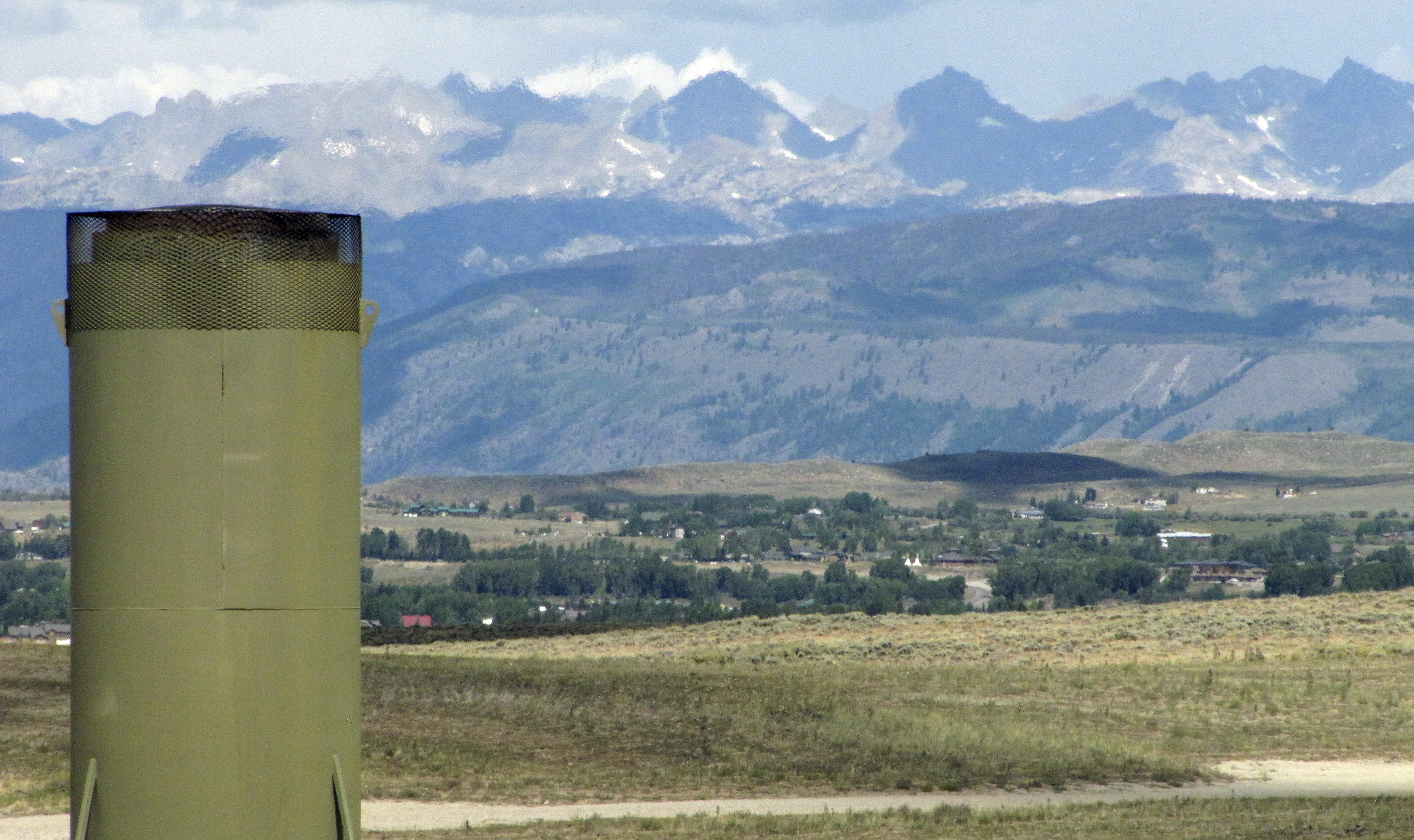Records suggest a GOP-favored analysis of Biden's climate plan is closely linked to the oil and gas industry


A free daily email with the biggest news stories of the day – and the best features from TheWeek.com
You are now subscribed
Your newsletter sign-up was successful
Republicans, including Rep. Liz Cheney (R-Wyo.), have relied heavily on a study by a University of Wyoming professor to counter President Biden's climate change plan, but public records suggest the analysis was influenced by the oil and gas industry, The Guardian reports.
Per The Guardian, the records, obtained by Documented and shared with Floodlight (which partners with The Guardian) and Wyoming Public Media, show the Western Energy Alliance — which represents 200 oil and gas companies in the western United States — encouraged Wyoming's Tim Considine to write a proposal about his research for state officials, tried unsuccessfully to provide matching dollars for the state-funded study, and stayed involved throughout the process.
Industry-backed research is not uncommon, The Guardian reports, and Considine said his conclusions were not affected by the comments from the Western Energy Alliance. Still, transparency advocates have grown concerned that climate change studies are "increasingly being used to produce conclusions favorable to oil and gas companies in order to shape public opinion." Records show Wyoming Gov. Mark Gordon's office was aware of the Western Energy Alliance's involvement, but never disclosed it.
The Week
Escape your echo chamber. Get the facts behind the news, plus analysis from multiple perspectives.

Sign up for The Week's Free Newsletters
From our morning news briefing to a weekly Good News Newsletter, get the best of The Week delivered directly to your inbox.
From our morning news briefing to a weekly Good News Newsletter, get the best of The Week delivered directly to your inbox.
That said, Considine's analysis — which predicts Biden's plan will kill 18,000 Wyoming jobs and cost the state education, healthcare, and infrastructure funding — hasn't only been called into question because of concerns about a lack of independence. He modeled two scenarios, including a complete drilling ban, which Biden is not proposing, and a freeze on new leases. Biden has temporarily implemented the latter, but Considine reportedly acknowledged in early emails with the Western Energy Alliance that it was difficult to estimate the outcome based on existing data. Laura Zachary, the co-director of Apogee Economics and Policy, estimates the study exaggerates the economic fallout of Biden's climate plan by 70 to 85 percent. Read more at The Guardian.
A free daily email with the biggest news stories of the day – and the best features from TheWeek.com
Tim is a staff writer at The Week and has contributed to Bedford and Bowery and The New York Transatlantic. He is a graduate of Occidental College and NYU's journalism school. Tim enjoys writing about baseball, Europe, and extinct megafauna. He lives in New York City.
-
 ‘Those rights don’t exist to protect criminals’
‘Those rights don’t exist to protect criminals’Instant Opinion Opinion, comment and editorials of the day
-
 Key Bangladesh election returns old guard to power
Key Bangladesh election returns old guard to powerSpeed Read The Bangladesh Nationalist Party claimed a decisive victory
-
 Judge blocks Hegseth from punishing Kelly over video
Judge blocks Hegseth from punishing Kelly over videoSpeed Read Defense Secretary Pete Hegseth pushed for the senator to be demoted over a video in which he reminds military officials they should refuse illegal orders
-
 The plan to wall off the ‘Doomsday’ glacier
The plan to wall off the ‘Doomsday’ glacierUnder the Radar Massive barrier could ‘slow the rate of ice loss’ from Thwaites Glacier, whose total collapse would have devastating consequences
-
 Can the UK take any more rain?
Can the UK take any more rain?Today’s Big Question An Atlantic jet stream is ‘stuck’ over British skies, leading to ‘biblical’ downpours and more than 40 consecutive days of rain in some areas
-
 As temperatures rise, US incomes fall
As temperatures rise, US incomes fallUnder the radar Elevated temperatures are capable of affecting the entire economy
-
 The world is entering an ‘era of water bankruptcy’
The world is entering an ‘era of water bankruptcy’The explainer Water might soon be more valuable than gold
-
 Climate change could lead to a reptile ‘sexpocalypse’
Climate change could lead to a reptile ‘sexpocalypse’Under the radar The gender gap has hit the animal kingdom
-
 The former largest iceberg is turning blue. It’s a bad sign.
The former largest iceberg is turning blue. It’s a bad sign.Under the radar It is quickly melting away
-
 How drones detected a deadly threat to Arctic whales
How drones detected a deadly threat to Arctic whalesUnder the radar Monitoring the sea in the air
-
 ‘Jumping genes’: how polar bears are rewiring their DNA to survive the warming Arctic
‘Jumping genes’: how polar bears are rewiring their DNA to survive the warming ArcticUnder the radar The species is adapting to warmer temperatures
